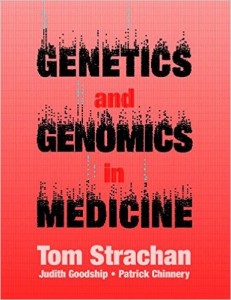A recent debate has started after Siddhartha Mukherjee published an article about epigenetics. The piece, called “Same but different” (subtitle: “How epigenetics can blur the line between nature and nurture”). Mukherjee, a physician, is well known for writing the Pulitzer-Prize-winning book (2011) The Emperor of All Maladies: A Biography of Cancer.
Jerry Coyne published in his blog Why Evolution is True some of the critics scientists had with the Mukherjee piece:
- The New Yorker screws up big time with science: researchers criticize the Mukherjee piece on epigenetics
- Researchers criticize the Mukherjee piece on epigenetics: Part 2
Then in An Epigenetics Controversy, Siddhartha Muhkerjee responds to the critique of his recent New Yorker piece
Coyne writes again, L’Affaire Mukherjee: the last word , excerpt from the post:
” So, for the record, let me say this: all of us, including Mukherjee, agree on the gist of what follows (though I don’t know if he’d sign off on this wording):
There is absolutely no evidence for any Lamarckian form of evolution based on “epigenetic” markers on the DNA produced by the environment. Further speculations about this—and claims that it shows that the modern theory of evolution is wrong—are misguided and should be ignored pending some real evidence. “
The Vox writes an article on this discussion: Why scientists are infuriated with a New Yorker article on epigenetics
Coyne again Dreadful science journalism at Vox: all interpretations of science are equal, but some are cuter than others
“The problem with Mukherjee’s piece, of course, is that he presented a story—that epigenetic markers and histone-protein modifications are THE mediators of differential gene expression in differentiated cells, working as a kind of “epigenetic code”—for which there is virtually no evidence. This was the cute and intriguing tale that he told readers of the New Yorker, who, of course, loved the good writing and assumed what Mukherjee said was accurate.
But what he left out—to the readers’ detriment—was the true story of gene regulation as we know it: a story identifying protein “transcription factors” and short bits of RNA as the factors that regulate gene expression. As Mark Ptashne and John Greally noted, neither Drosophila nor Caenorhabditis worms have DNA “markers,” yet both organisms—paradigms for the study of genetics and development—develop just fine, thank you. That alone should give pause to people like Mukherjee or the Epigenesis Mavens, and it comes on top of the lack of evidence for epigenetic or histone-regulated control of genes.
“The problem with Mukherjee’s piece, of course, is that he presented a story—that epigenetic markers and histone-protein modifications are THE mediators of differential gene expression in differentiated cells, working as a kind of “epigenetic code”—for which there is virtually no evidence.”
And from the comments in the blog, Coyne himself:
“The problem with Mukherjee’s piece, of course, is that he presented a story—that epigenetic markers and histone-protein modifications are THE mediators of differential gene expression in differentiated cells, working as a kind of “epigenetic code”—for which there is virtually no evidence.”
The New York Time has reviewed Siddhartha Mukherjee latest book, The Genes: an intimate history
Fortune writes Siddhartha Mukherjee, Author Of Bestselling Cancer Book, Starts Biotech Company And Answers Criticism
And one good summary from Nature: Researcher under fire for New Yorker epigenetics article
Michael Eisen a biologist at UC Berkeley writes in his blog The Imprinter of All Maladies
On WhyEvolutionIsTrue blog PLOS Biology weighs in on Mukherjee affair: “Writing for Story distorts and cripples explanatory prose”
Scientific American in Gene Regulation, Illustrated
Senior Editor, Current Biology writes to the New Yorker, Mukherjee replies The Regulators
Looking forward to reading Siddhartha Mukherjee latest book, The Genes: an intimate history


